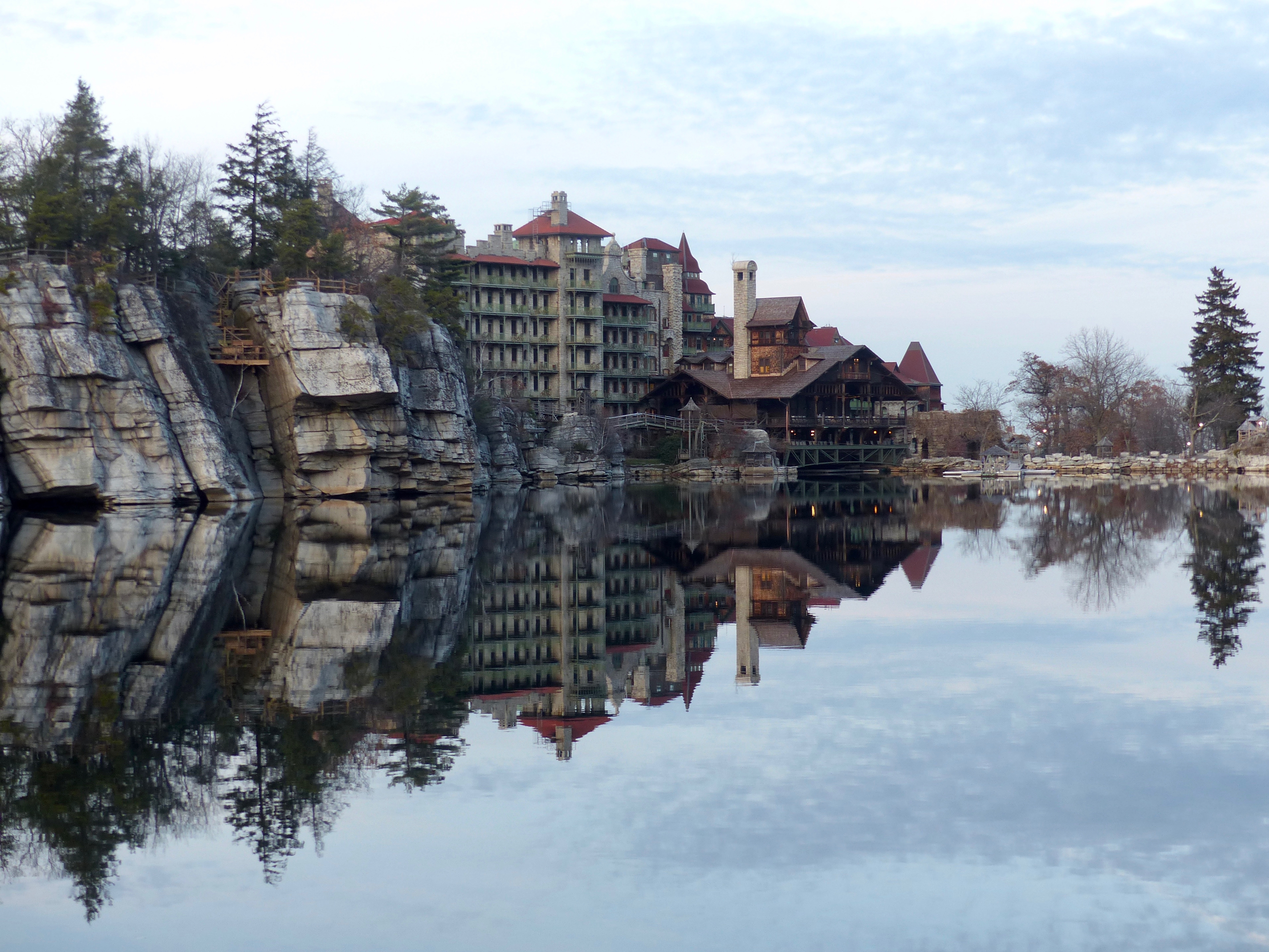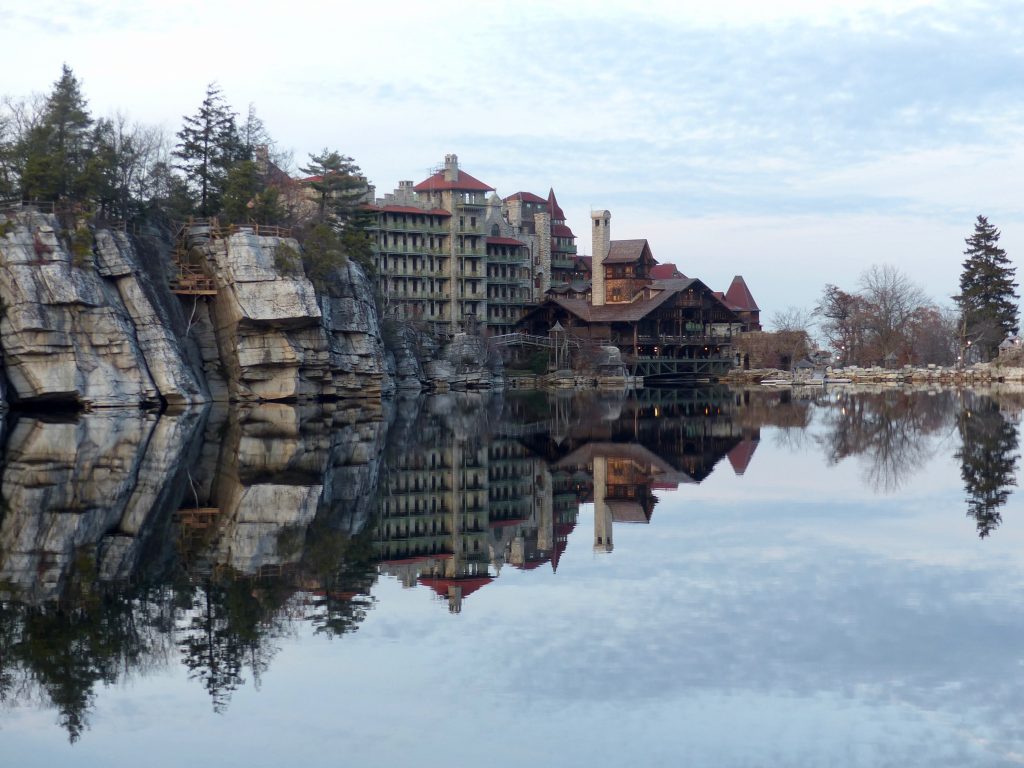New Paltz biologist teams with Mohonk Preserve to host global lake science conference
More than 240 scientists and researchers from around the world visited the Hudson Valley from Nov. 27 – Dec. 1 for the 19th annual meeting of the Global Lake Ecological Observatory Network (GLEON), the international, grassroots network of scientists, information technology experts and engineers dedicated to understanding the world’s lakes.
Among the hosts and coordinators of this year’s GLEON conference was David Richardson, associate professor of biology at SUNY New Paltz, whose research into lake ecology and climate science has produced numerous opportunities for New Paltz students to conduct meaningful field research.
Richardson has long worked with GLEON, as well as partners at the Mohonk Preserve, and undergraduate students at the College, to study lakes in the Hudson Valley and throughout the northeast. Much of his work relies on monitoring devices that can collect information on air and water temperature, lake-air gas exchange, and a suite of other dynamic lake characteristics.
He is the GLEON site contact for the monitoring station at Mohonk Lake and the co-author of a recent peer-reviewed paper that observes rising temperatures at lakes throughout the northeast United States and Canada.
“It’s impossible to understand lakes on a global scale if we only study these systems in isolation,” Richardson said. “GLEON enables us to ask big scientific questions over large distances and long timescales. This approach connects researchers from around the world and gives rise to new scientific questions, lines of inquiry, and ultimately, solutions.”
 That spirit of collaborating to better know and protect lakes around the world was pervasive at the GLEON meeting, as attendees representing nations on six continents joined together to discuss methods, compare findings and gain field experience at sites within view of the New Paltz campus.
That spirit of collaborating to better know and protect lakes around the world was pervasive at the GLEON meeting, as attendees representing nations on six continents joined together to discuss methods, compare findings and gain field experience at sites within view of the New Paltz campus.
Eight New Paltz undergraduate students attended parts of the conference as well:
- Emma Bruno ’18 (Biology, Geology)
- Hailee L. Edwards ’18 (Biology)
- Dejea M. Green ’17 (Biology)
- Anthony Hollander ’18 (Biology)
- Sawyer R. McFadden ’18 (Environmental Geochemical Science)
- Kayla A. Reid ’18 (Biochemistry)
- Philesha Teape ’20 (Biology)
- Heather L. Wander ’18 (Biology)
Alumnus Michael Forcella ’06 (Biology) ’17g (Computer Science) attended the conference as well and presented his thesis work on creating sensor networks using open source hardware.
“It was so impressive to see the emphasis that the GLEON organizers placed on supporting early-career scientists, not only through travel support, but also by promoting their science and giving them opportunities to take on leadership roles within the Network,” said Elizabeth Long, director of conservation science at Mohonk Preserve.
GLEON 19 was hosted and co-sponsored by the Cary Institute of Ecosystem Studies, Mohonk Preserve and SUNY New Paltz (School of Science and Engineering, Dean Dan Freedman), with additional funding provided by the New York City Department of Environmental Protection and the National Science Foundation.
More information about the Biology Department at SUNY New Paltz is available online.


